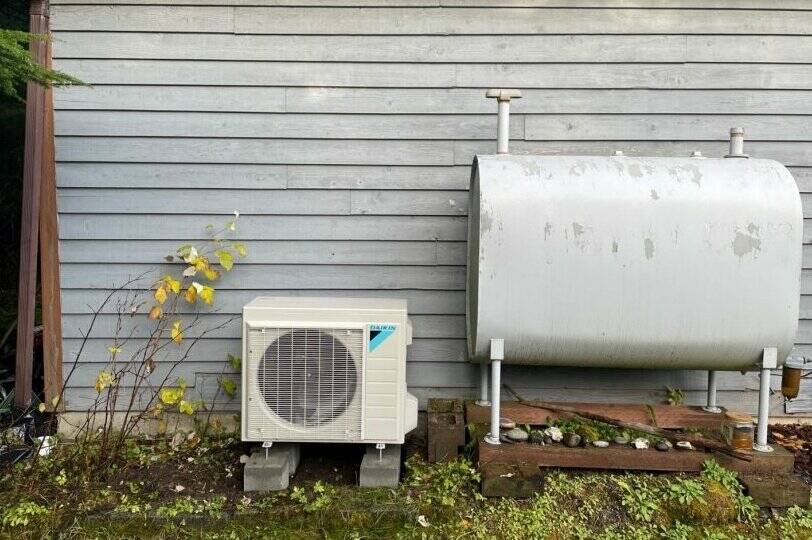A $38.6 million federal grant will help lower the cost of energy-saving heat pumps for an estimated 6,100 Alaska households stretching from Ketchikan to Kodiak.
The money will provide rebates of between $4,000 and $8,500 per household for the purchase and installation of a heat pump.
The funding is in addition to federal tax credits of up to $2,000 per household.
The federal grant for coastal Alaska, announced July 22, will go the Southeast Conference, a community and economic development nonprofit for the region, and Alaska Heat Smart, a nonprofit dedicated to reducing the cost of living and increasing the use of clean energy.
The grants can be used to replace oil-fueled or electric hot water heating systems, or electric baseboard heating in homes. The money is for residential conversions only, said Robert Venables, Southeast Conference executive director.
“I think we’ll be able to roll out the program closer to October,” he said. Though the grant, from the U.S. Environmental Protection Agency, is for a five-year program, Venables doubts it will take that long to distribute the money to applicants.
The program administrators estimate the funds will help about 6,100 households.
The money was awarded through the EPA’s Climate Pollution Reduction Grant, a nationwide program funded under the 2022 Inflation Reduction Act. The national grant program will provide nearly $5 billion to states, local governments, tribes and territories to reduce greenhouse gas emissions and help lower energy costs.
The amount of each rebate in coastal Alaska will depend on household income and will be calculated on a sliding scale, Venables said, adding that half of the $38.6 million will be designated for low-income and Alaska Native households.
The Tlingit and Haida Regional Housing Authority and Kodiak Area Native Association are supporting the program.
The Southeast Conference and Alaska Heat Smart will reach out to communities and publicize the application process this fall, Venables said.
“This is coastal Alaska’s ‘ticket to ride,’” Andy Romanoff, executive director of Alaska Heat Smart, said in the announcement.
Heat pumps are increasingly popular for their energy efficiency and stable costs compared to fluctuating heating fuel prices. Installation includes an outdoor heat exchanger that pipes warmth into the home, where it flows into the room from an indoor heat exchanger mounted on a wall.
The Alaska Cold Climate Housing Research Center at the University of Alaska Fairbanks explains the process: “Because they use electricity to run a refrigeration cycle to transfer heat, instead of using electricity to create heat, they can reach efficiencies greater than 100%.”
“Heat pumps generally save households 25% to 50% on heating bills,” according to the July 22 announcement by the Southeast Conference and Alaska Heat Smart.
Installation costs can start around $5,000 for a single unit, depending on how much electrical work is needed, according to Juneau-based Alaska Heat Smart. The cost would be higher for homeowners that want multiple units to cover more floors and separate rooms in the house.
• This article was originally published by the Wrangell Sentinel.

